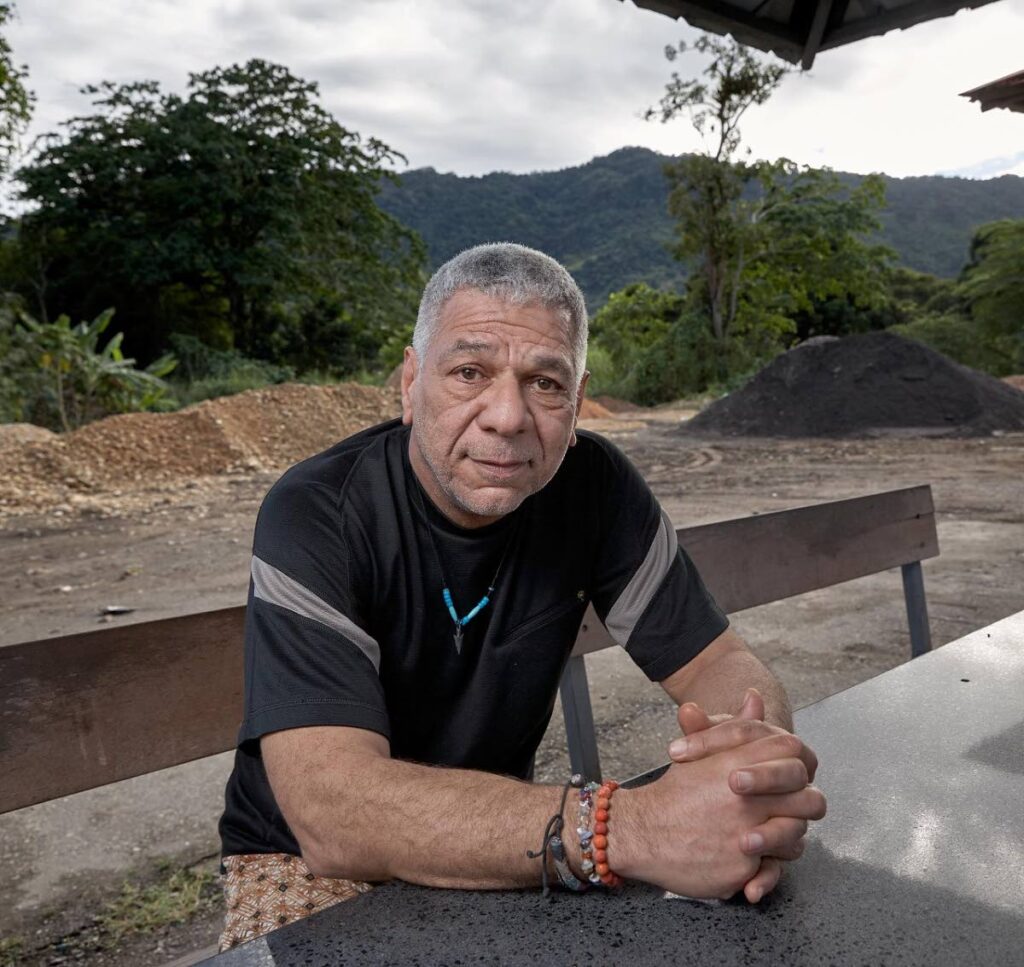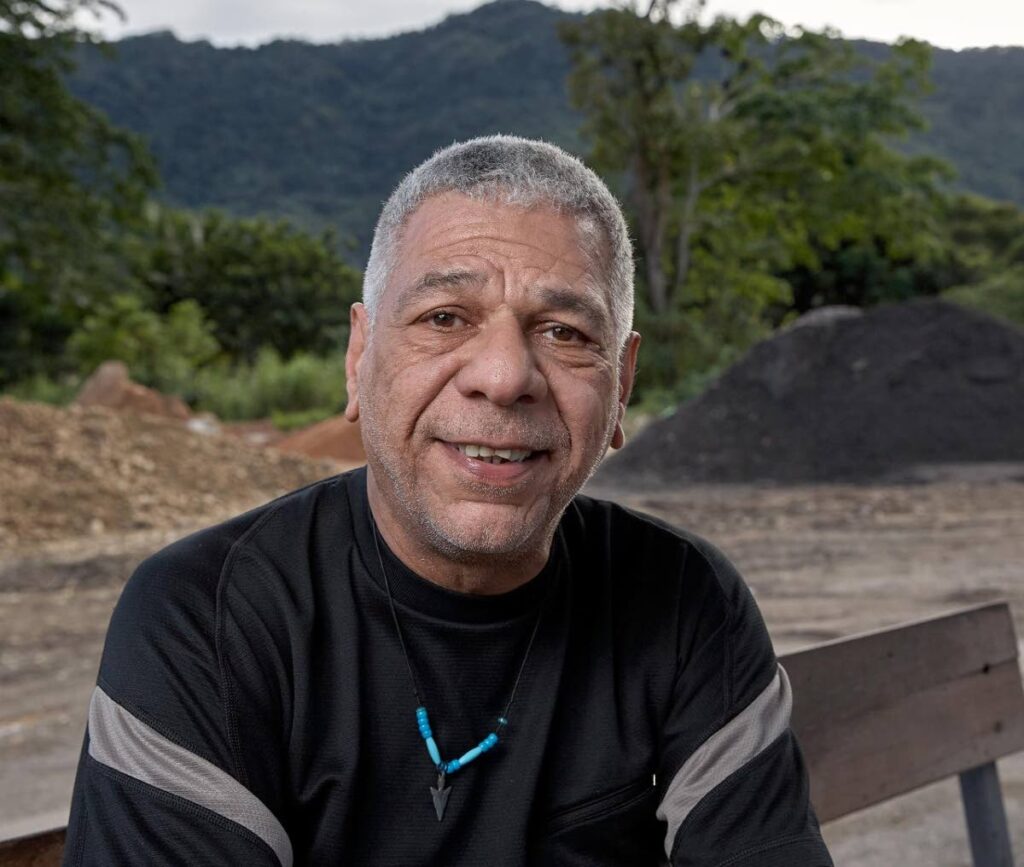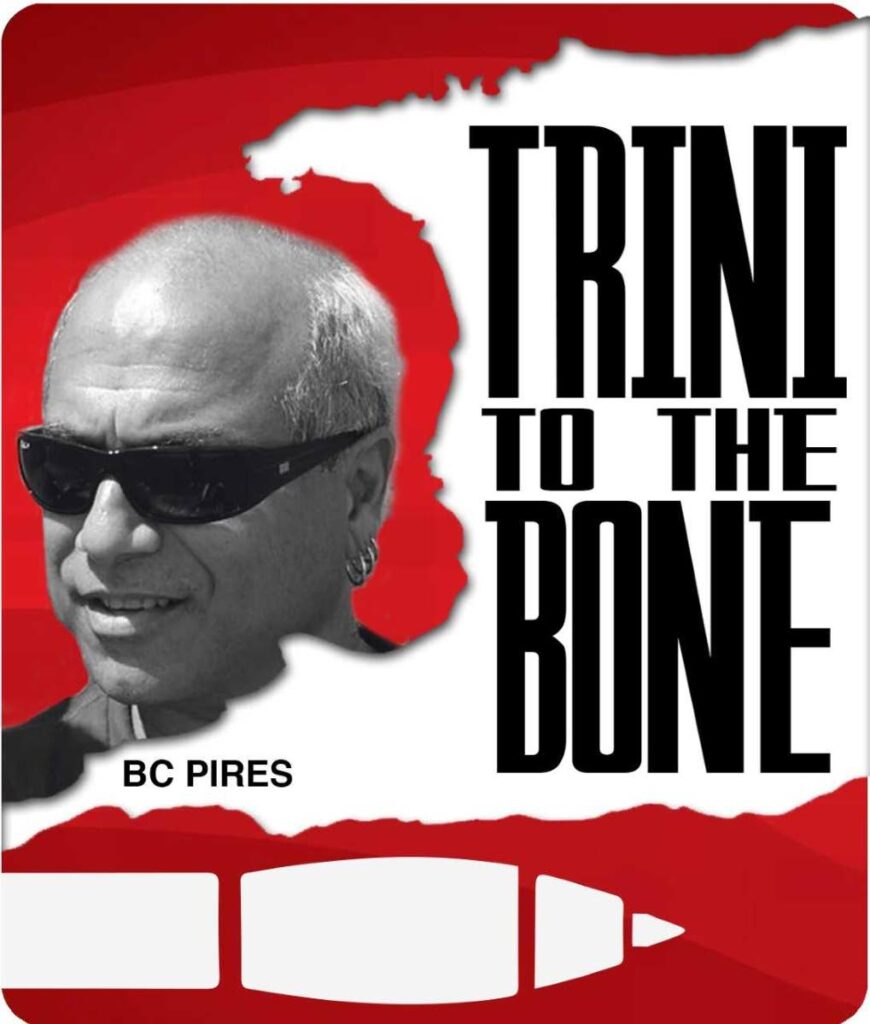Drum, they told me (pa-ra-pa-pa-PAN!)

AS TOLD TO BC PIRES
My name is Richard Bailey and I play drums!
One of the musicians I played with was Jeff Beck, who just died. A lot of people still know me today from Jeff’s biggest album.
I don’t go to work. I go to play.
My dad, the athlete, McDonald Bailey was from Trinidad. My mum, Doris, was English. And I happen to be born in Guyana, where Dad was working at the time. But I grew up in Trinidad. I don’t really remember or have any connection with Guyana. Dad’s still in the Guinness Book of Records with I think 14 AA records in a row.
My brother, Robert, is also a musician. He was a founder-member of the band, Osibisa. Andre Tanker was also my brother-in-law. His widow, Christine, is my sister. My cousin, Selwyn Taradath was a founder-member of Phase II. My father had a good ear but he could only play one piano tune: Sweet Georgia Brown. My 26-year-old daughter, Tanya, is a singer herself.
I live in London, England. When I was 12, my family moved to London and, for music and work, it’s a good place to be.
I’ve been playing drums since I can remember, from a child. I actually left school to play drums at age 15. I told my father, “O’levels won’t make me play a better beat”. But I wasn’t doing my work, so I wouldn’t have got the O’levels anyhow.
My parents were supportive. Obviously, they pushed me to go to school but they didn’t insist. They knew where I was going and didn’t stop me. Well, they couldn’t – but it was nice that they didn’t.
I’ve played Madison Square Garden with Steve Winwood and Tom Petty & the Heartbreakers. The biggest name was Bob Marley, I suppose. I toured England and America with him when I was 16. We were in Johnny Nash’s band and Bob and Johnny were writing, so we all travelled and played together.
I played 16 years in a row for Phase II Pan Groove at Panorama. My own band, the Breakfast Band, was also a big part of my life. Our biggest hit was LA 14. Our keyboard player, James Lascelles, was a member of the British Royal Family, something like 26th in line for the throne. And for 16 years, I was with (English acid jazz funk band) Incognito. And I still tour with (Eric Clapton, Traffic and Blind Faith keyboardist/guitarist/singer Steve Winwood).

People loved my playing on Jeff Beck’s Blow by Blow, the first big album I did. I was 18 going on 19. But that was totally free playing. I played whatever I wanted, rearranged how I liked and it was very sweet. That was me being me. If I did what I did on Blow by Blow now, the producer would say, “No, no, keep it straight!”
Jeff asked me to go on tour with Blow by Blow and I said no. I wanted to start getting myself together. And I didn’t know it was going to be the biggest album, used in US music schools to teach fusion drumming. Mistake? Blessing? Playing live in America, Santana and a lot of other heavy duty musicians would have heard me… I don’t know. Maybe, if I’d toured Blow by Blow, I wouldn’t be playing now.
I recorded Andre Tanker’s Children of the Big Bang album, too. I did some tracks on the soundtrack of Tommy, the movie of the Who’s rock opera. I played the drums on Steel Pulse’s Earth Crisis and Babylon the Bandit albums. Jimmy Cliff, lots of other reggae artists.
I listen to all sorts of music but I like the vibe of salsa and good soca. Calypso in the old days used to be like jazz, the chord progressions, the instrumentation, all that was fantastic. You have to look for good soca now.
It’s a different style of soca now, and not to my liking. It’s all programmed – even the pan is not real sometimes! Even the rhythm section is a computer! And you’ve got so many brilliant percussionists in Trinidad.
My time with Jeff was very brief but very organic because he was very cool, very relaxed, and an amazing player. And that whole album was all first and second takes. Playing live, feeling off one another, we built up a rapport. He was a very natural player and very encouraging. His sound and technique were incredible and he was phenomenal.
A lot of the stuff Jeff Beck does is live, with his fingers – he doesn’t use a plectrum. His little finger is stretched out on the “volume” so you’re getting natural dynamics, changing the volume as he’s hitting the note. It was very inspiring, how he played. At that time, that’s how we all played, naturally. Albums today are prepared and rehearsed – and they don’t sound like Blow by Blow. That was very spontaneous. The writing allowed for that. We had an idea of a song and we played it as we felt it.
I’ve never done anything else but play. It’s work because you get paid for it but I love doing it.
I don’t think I thought of drumming as “a career”. I just did it. And enjoyed it. And managed to make some good money doing it
Electronic drumming and percussion never speeds up. It’s flat. Naturally, if it was people playing, they’d pick up on one another’s energy, the crowd’s energy. But the machine can’t tell. So the music doesn’t go anywhere. The spirit is what counts, not so much the music, but how you play the music – and there’s no spirit.
You have to draw on inner strength and confidence to keep doing music, otherwise it’s easy to give up. There’re challenging periods when you’re not working. But the whole working world is coming like that now. There’s no security in anything. There’re so many people who did the right thing, saved their pennies for their pension fund – and now they’re struggling! And they never played Madison Square Garden or been around the world 15 times!
Starting playing pan was very natural. I’d been around pan all my life, I had one, for playing melodies at home. And then I pushed myself. I stopped trying to play other people’s music, which was difficult. I had to take a few sips of rum to build up the Dutch courage.
Playing at home was one thing, playing blues and jazz and reggae standards with really good musicians live was a bit daunting. But, a few years on, I’m glad I made the step. I feel more accomplished and have quite a big repertoire on the pan.
As a Trinidadian, it’s natural to go from drums to steel drums. You’re still using your sticks but now you’re playing melodies, not rhythm. My musical knowledge is limited, theory-wise, but my experience and my ear from playing for so long has helped me. I think I’ve developed quite quickly as a pannist. And it’s really enjoyable.
Even on drums, I always feel like a beginner. On pan, even more so.
You have to love music to do it. It can eat people up. I’ve seen people destroyed by the lifestyle.
First stop from Piarco is always doubles. Roti, pelau, you can get it all in London now, but I’ve never got a good doubles there.
For relaxation, I play drums. I like to do yoga, too, if I get the chance. And travelling is fun, too, even if it can get hard.
I’m not born in Trinidad but I feel like a Trini. So being Trini is identifying yourself with the culture. Trini, for me, is a vibe. You can be Trini in London or anywhere.
Trinidad & Tobago is home and everything about it inspires me: the people; the food; the energy; the music. The moment I arrive, I feel cool. There’s crime in London, all over the world, but those places are bigger so it doesn’t feel as close to you. You could be on the tube, minding your business, and the wrong people get on, and you’re in trouble.
Read the full version of this feature on Friday evening at www.BCPires.com.


Comments
"Drum, they told me (pa-ra-pa-pa-PAN!)"